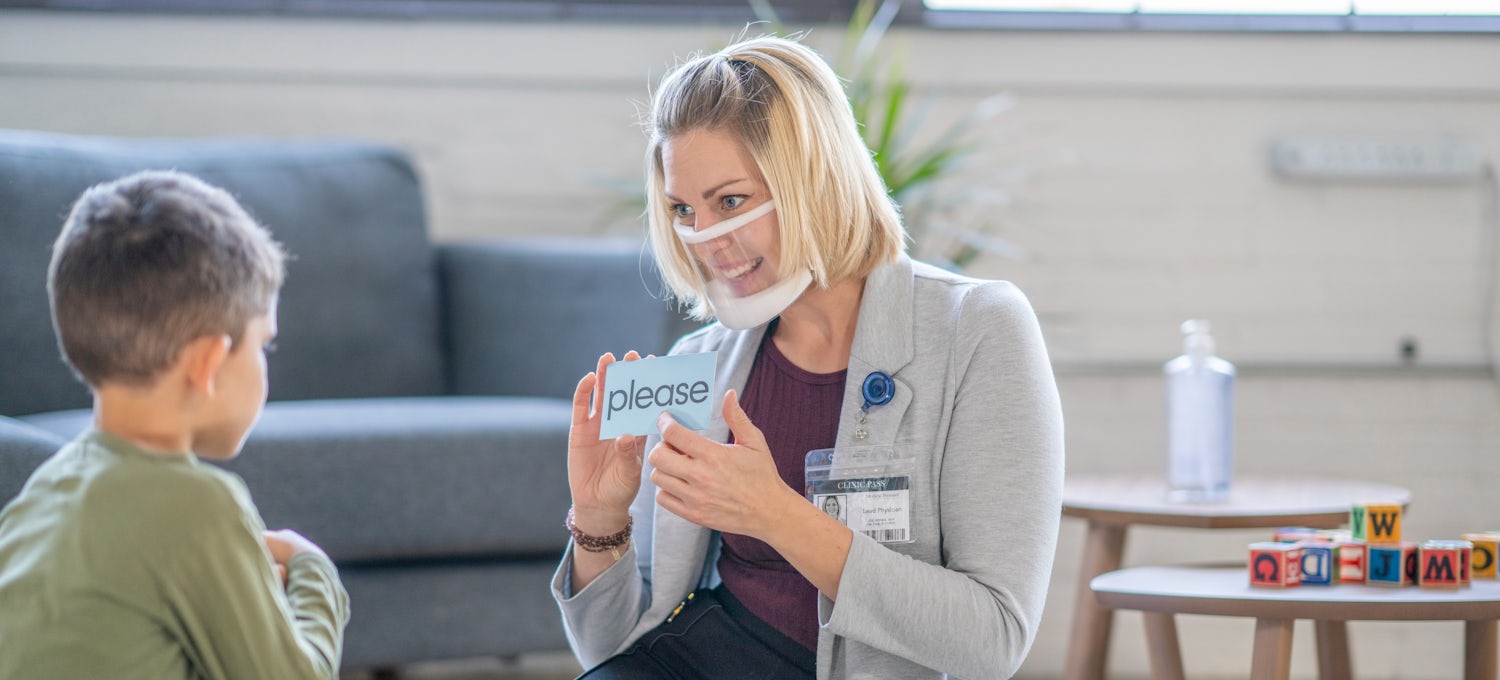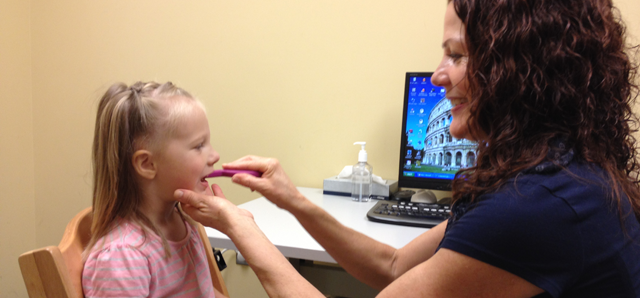Exactly How a Speech Pathologist Can Assist Improve Interaction Skills
Efficient interaction is a foundation of personal and expert success, yet many people encounter obstacles that prevent their capacity to reveal themselves clearly. A speech pathologist is geared up to deal with these barriers through targeted assessment and treatment approaches customized to every individual's requirements. By utilizing evidence-based therapeutic techniques, they not just function to enhance speech and language disorders but additionally boost general communicative proficiency. Understanding the complex duty of a speech pathologist exposes how their knowledge can transform lives, welcoming a better evaluation of the specific approaches and results connected with their practice.
Comprehending Interaction Conditions
Recognizing communication problems is crucial for recognizing just how they impact people' ability to reveal themselves and engage with others. Communication problems encompass a vast array of problems that influence speech, language, and social interaction, commonly hindering efficient interaction. These disorders can develop from numerous factors, including neurological problems, developing delays, physical disabilities, or emotional issues.
Speech disorders may show up as difficulties in voice, fluency, or expression manufacturing, influencing how words are noticable or talked. Language problems, on the other hand, include difficulties in understanding or making use of language, which can restrain both verbal and non-verbal communication. Social communication conditions are characterized by problems in the practical elements of communication, such as taking kip down conversation or understanding social hints.
The repercussions of communication problems are extensive, impacting not only the individual's ability to convey thoughts and emotions but also their social relationships, educational opportunities, and overall quality of life. Awareness of these disorders can foster empathy and assistance, urging reliable approaches for interaction and interaction. Comprehending the complexities of communication disorders is an important action towards promoting inclusivity and dealing with the needs of those affected.
Duty of a Speech Pathologist
Speech pathologists regularly play an essential duty in identifying and treating interaction problems, utilizing a variety of evidence-based techniques tailored to each individual's demands. These specialists deal with individuals across the life expectancy, from children with speech hold-ups to adults recovering from strokes or traumatic mind injuries. Their knowledge encompasses a variety of interaction problems, including articulation, voice, language, and fluency conditions.
In therapeutic setups, speech pathologists utilize organized interventions made to improve interaction abilities. They might apply methods such as speech exercises, language video games, and social communication training to promote enhancements in meaningful and receptive language capabilities. Speech Pathologist. In addition, they inform customers and their households concerning effective interaction strategies and adaptive approaches to navigate daily interactions
Beyond straight therapy, speech pathologists team up with other medical care specialists, caregivers, and educators to guarantee an extensive method to therapy. They support for customers by giving resources and assistance, making it possible for people to attain their communication objectives and improve their overall high quality of life. As specialists in the area, speech pathologists are crucial in cultivating effective interaction, advertising freedom, and boosting social participation for those with communication challenges.
Assessment and Diagnosis Process
The assessment and diagnosis process conducted by speech pathologists usually includes a detailed analysis to recognize interaction conditions precisely. This process begins with an in-depth situation background, where the clinician gathers important info regarding the individual's medical, academic, and developing background. Understanding the context of the individual's interaction troubles is crucial for an exact medical diagnosis.
Adhering to the medical history, speech pathologists utilize informal evaluations and standard tests to examine numerous facets of interaction, consisting of speech audio manufacturing, language understanding, expressive language, and social communication skills. These evaluations are tailored to the person's age and certain problems, giving beneficial information for analysis.
Observation is also a vital element of the evaluation process, as it allows the medical professional to see firsthand just how the private communicates in all-natural settings. In addition, interviews with member of the family and educators can supply understanding into the person's communication obstacles across various atmospheres.
Once the analysis is total, the speech pathologist synthesizes the searchings for to determine a medical diagnosis and recommend proper interventions. This detailed evaluation procedure guarantees that people receive targeted support customized to their unique interaction demands, laying the foundation for efficient healing techniques.
Healing Techniques and Techniques
Countless restorative strategies and strategies are utilized by speech pathologists to resolve a range of interaction conditions visit properly. One commonly used method is expression therapy, which concentrates on correcting speech seems via repeating and aesthetic cues. This method is specifically useful for individuals with speech sound disorders.
One more reliable technique is language treatment, which boosts both meaningful and receptive language skills. This may include interactive tasks that promote vocabulary advancement, sentence framework understanding, and conversational abilities. In addition, speech pathologists frequently utilize social skills training to improve pragmatic language abilities, enabling individuals to navigate social communications extra efficiently.
Fluency shaping and stuttering alteration strategies are especially created to help those experiencing fluency conditions. These methods help clients create smoother speech patterns and take care of the emotional and physical components of stuttering.
Moreover, different and augmentative interaction (AAC) systems are utilized for individuals with severe interaction problems. These systems, which can consist of gestures, symbols, or electronic gadgets, provide important assistance for reliable communication.
Benefits of Speech Treatment

In addition, speech treatment can help in developing vital listening and understanding abilities, promoting better interaction in discussions. People with cognitive-communication disorders can also profit, as treatment focuses on strengthening memory and analytic capabilities, necessary for efficient communication.
One my link more vital element is the emotional assistance offered throughout treatment sessions. Speech pathologists create a secure atmosphere, encouraging people to conquer anxiety and aggravation relevant to their communication issues. This assistance can lead to boosted self-esteem and total mental health.
Additionally, early treatment through speech treatment can prevent additional complications, making certain that people reach their full communicative capacity. Overall, the advantages of speech therapy prolong beyond simple speech improvement, favorably impacting numerous dimensions of life for those influenced by communication troubles.
Final Thought
In summary, speech pathologists play a critical function in addressing interaction problems via assessment, medical diagnosis, and customized therapeutic treatments. By using evidence-based techniques, these experts enhance individuals' speech and language capabilities, cultivating improved quality, fluency, and social interaction abilities. The advantages of very early intervention highlight the value of looking for aid from speech pathologists, as their know-how can significantly improve communicative capacity, inevitably leading to greater success in both specialist and individual rounds.

Speech pathologists regularly play a vital function in detecting and treating interaction problems, utilizing a variety of evidence-based strategies tailored to each individual's requirements. As specialists in the area, speech pathologists are important in promoting reliable interaction, promoting independence, and improving social involvement straight from the source for those with interaction challenges.

Comments on “How a Speech Pathologist Supports Improve Communication Skills”